PVC granules, or PVC pellets, are small particles of PVC resin mixed with additives to achieve specific properties. They can be molded, extruded, or shaped using various techniques. PVC granules offer advantages like cost-effectiveness, durability, chemical resistance, and easy processing. However, they have drawbacks, including environmental concerns during production and disposal, and the potential release of harmful chemicals when exposed to high temperatures. PVC granules are widely used in industries such as construction, automotive, electrical, and packaging to make products like pipes, fittings, cables, and consumer goods. Stay with us in this article to learn about the properties of PVC granules.
What is PVC granules?
Polyvinyl chloride, or PVC, is a common material that is valued for its affordability, strength, and adaptability. It is made via a procedure known as suspension polymerization to create PVC granules. Numerous industries, including packaging, healthcare, automotive, electrical, and construction, use these granules as their basic material. PVC grains are melted by manufacturers and shaped into a variety of shapes and forms, including pipes, fittings, profiles, sheets, cables, shoes, and toys. PVC is a desirable material with uses in plumbing, flooring, roofing, windows, cars, packaging, and healthcare because of its qualities such as chemical resistance, electrical insulation, fire retardancy, and durability. Follow us for more information.
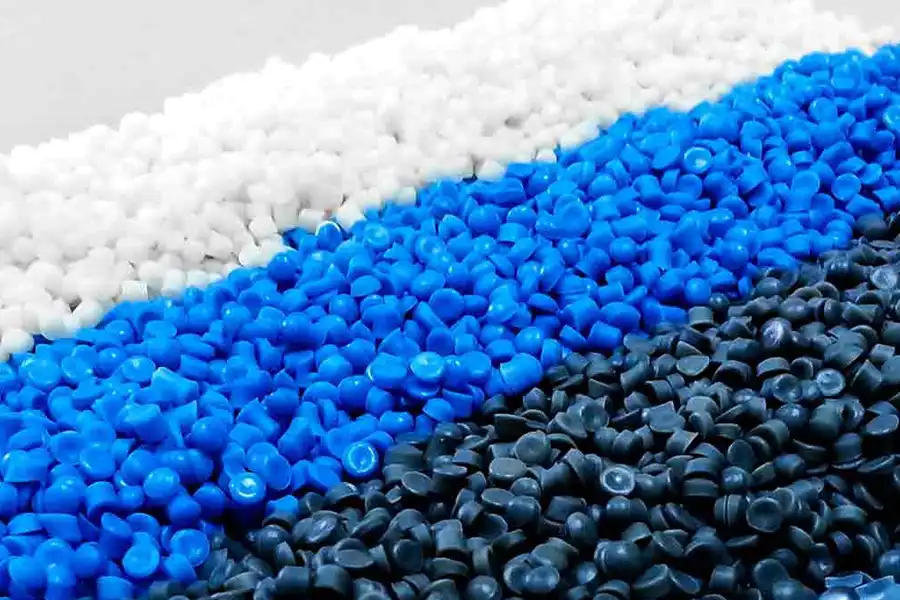
Types of PVC compound
There are various varieties of PVC granules available, each with special qualities and uses.
- These are a few typical varieties of PVC granules: PVC Granules That Are Not Flexible: PVC resin is used in large quantities in the formulation of rigid PVC granules, whereas plasticizers are used in smaller amounts. This produces a stiff and rigid material that is frequently used in applications where strength and durability are essential. The manufacturing of pipes, fittings, window profiles, cladding, and other building elements frequently uses rigid PVC granules.
- Flexible PVC Bits: Flexible PVC granules have a larger percentage of plasticizers, which give the material suppleness and flexibility. These granules are used to make flexible products like hoses, cables, gaskets, inflatable items, and some kinds of flooring. Granules made of clear PVC have a translucent or transparent look. They are employed when the finished product must have a see-through or light-transmitting quality. Applications for clear PVC granules include transparent sheets, blister packaging, clear tubing, and packaging films.
- Coloured PVC Granules: PVC items with distinct colours can be made using coloured PVC granules, which come in a variety of colours. Toys, footwear, decorative objects, and automobile interior parts are just a few uses for these granules.
- Foam PVC Granules: When heated, additives in the formulation cause the material to expand and take the form of a cellular structure. This produces a material that is insulating, lightweight, and has a cellular or foamed texture. Applications for foam PVC granules include display boards, insulation, signs, and specific kinds of packaging.
- UV-stabilised PVC Granules: These PVC granules are designed to withstand deterioration brought on by exposure to ultraviolet (UV) light and sunshine. These granules are utilised in outdoor furniture, window profiles, and outdoor signage—applications where extended exposure to sunlight is anticipated.
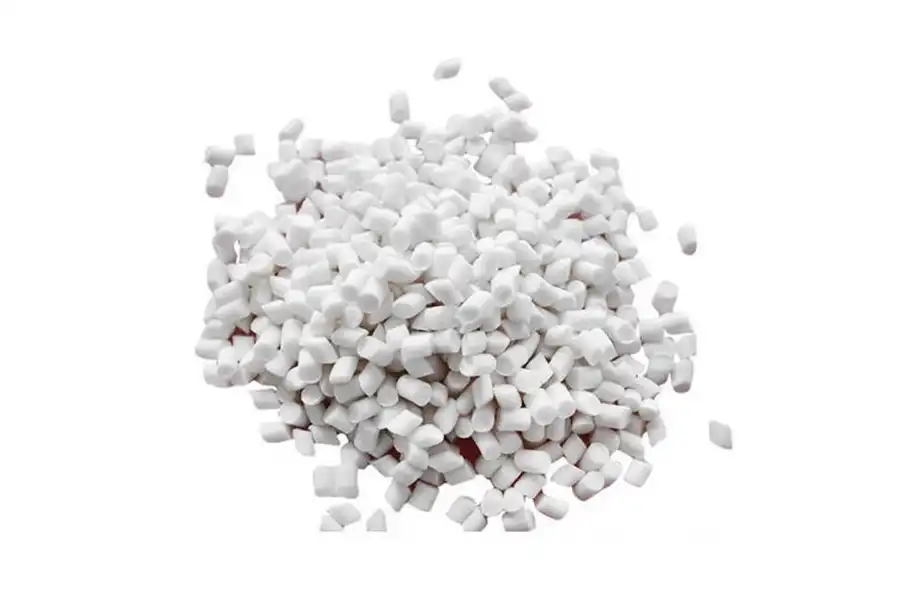
Read more: What are additives in PVC
Features and properties of PVC granules
PVC pellets, sometimes referred to as granules, have a variety of characteristics and attributes that make them appropriate for a broad range of uses. The following are some of the main properties of PVC granules:
- Versatility: PVC granules are very adaptable and may be made to fit a variety of needs. To get desired qualities like flexibility, stiffness, transparency, or flame resistance, they can be altered using different additives, fillers, and colours.
- Durability: PVC granules are renowned for their long-lasting effectiveness and durability. Their exceptional resilience against weathering, chemicals, and abrasion adds to their appropriateness for harsh outdoor applications.
- Thermal Stability: PVC granules can tolerate a broad range of temperatures without experiencing appreciable degradation because of their strong thermal stability. PVC granules are appropriate for both high- and low-temperature applications because of this feature.
- Flame Resistance: It is possible to manufacture PVC granules to have built-in flame resistance. Because of their low flammability and high ignition temperature, they are appropriate for uses where fire safety is critical.
- Electrical Insulation: PVC granules have outstanding qualities for electrical insulation. Their low electrical conductivity and excellent dielectric strength make them perfect for use in the electronics and electrical sectors.
- Chemical Resistance: PVC granules can withstand a variety of substances, such as solvents, oils, acids, and alkalis. PVC granules are appropriate for applications involving contact with a variety of caustic substances because of their chemical resilience.
- Processing Ease: PVC granules process very easily. They are easily melted, moulded, extruded, or made into a variety of shapes by employing blow moulding, injection moulding, and extrusion, among other processing techniques.
- Economical: When weighed against numerous alternative plastic materials, PVC granules are very economical. Their pricing is influenced by the accessibility of PVC resin and the effectiveness of the production procedures.
- Recyclability: PVC granules can be recycled back into the production process. PVC granules are an environmentally favourable choice since PVC recycling lessens waste and its negative effects on the environment.
- Broad Range of Uses: PVC granules are used in many different industries, such as packaging, healthcare, automotive, electrical, and construction.
They are employed in the production of a broad variety of commodities, including flooring, medical equipment, fittings, profiles, cables, and consumer goods. It is significant to remember that PVC granules’ particular characteristics might change based on their composition, additives, and intended uses. PVC granules’ characteristics can be customised by manufacturers to satisfy particular applications and industrial needs.
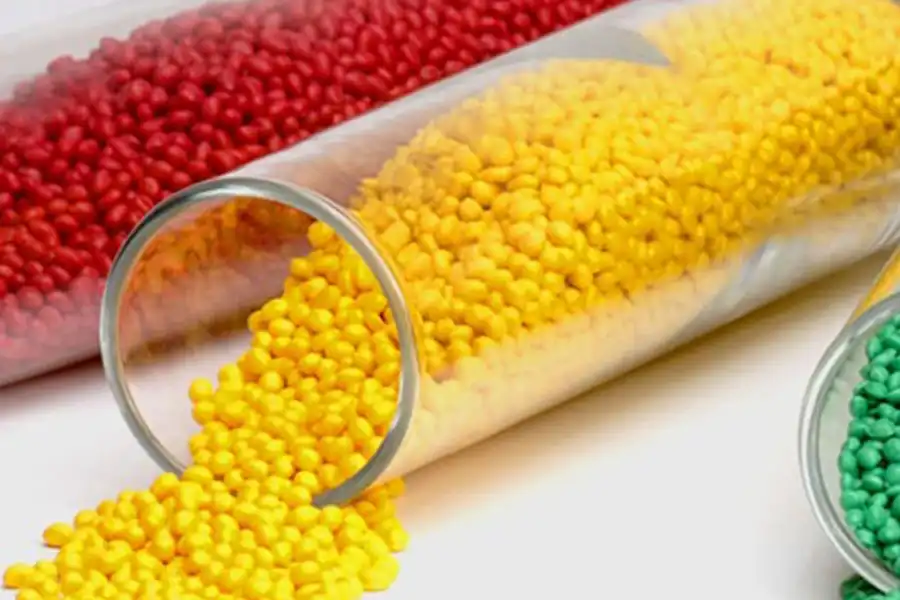
Properties of PVC granules in different industries
PVC compounds, which are used to produce pipes, have a number of general characteristics that allow them to be employed in a variety of applications. These characteristics are usually based on formulations made with K67 PVC resin, a kind of PVC resin that is widely used. The following are some general properties of PVC granules used in the production of pipes:
- Chemical Resistance: PVC compounds are very resistant to chemicals, which means that they can be used in a variety of applications where they come into contact with different liquids and chemicals. PVC pipes are resistant to many other corrosive compounds, as well as acids, alkalis, and salts.
- Durability: PVC materials are renowned for their extended service lives and resilience. PVC pipes are appropriate for above-ground and underground installations due to their strong resistance to impact, abrasion, and external forces. They don’t significantly deteriorate when exposed to extreme weather, such as UV radiation.
- Lightweight: Compared to many other pipe materials, PVC compounds are comparatively lightweight, which facilitates handling, transportation, and installation while also saving money. PVC pipes’ low weight also lessens the strain on supporting structures.
- Smooth Internal Surface: The superior hydraulic qualities of PVC pipes are attributed to their smooth internal surface. Effective fluid transfer is achieved by smoothness, which also lowers pressure loss, minimises flow resistance, and aids in preventing the buildup of sediment or scale.
- Thermal Insulation: PVC materials have strong thermal insulation qualities that aid in preserving the fluid’s temperature throughout transportation. Due to their low thermal conductivity, PVC pipes transfer less heat to their surroundings from the fluid inside them.
- Electrical Insulation: PVC compounds are ideally suited for cable protection and electrical conduits due to their superior electrical insulation qualities. PVC pipes offer a high degree of electrical safety and successfully separate electrical cables from outside influences.
- Fire Resistance: PVC compounds, which are used to make pipes, are naturally fire-resistant. They do not facilitate combustion and are self-extinguishing. PVC pipes improve fire safety generally because of their low flame spread and high ignition temperature.
- Low Maintenance: Throughout their lifespan, PVC pipes require very little maintenance. They are not susceptible to corrosion or scaling problems that can affect other pipe materials, and they are resistant to biological growth such as fungi and algae.
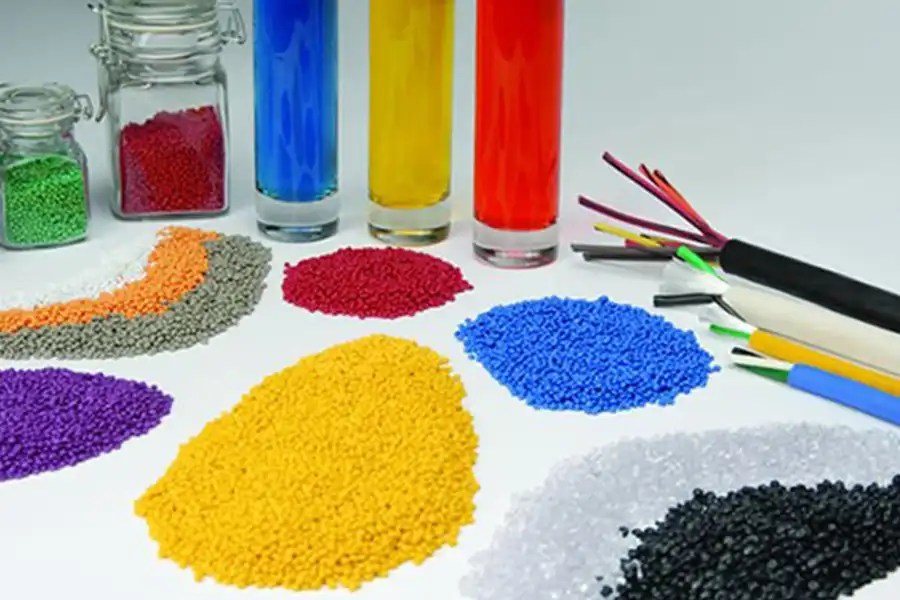
Advantages and disadvantages of using PVC
Advantages of PVC Composites
- Simple Shaping and Moulding: PVC compounds have a reputation for being very easy to shape and mould into a variety of shapes. Common plastic processing methods, including blow moulding, extrusion, and injection moulding, are easily applicable to the material. Because of this property, PVC compounds are extremely adaptable and fit for a variety of uses, such as pipes, sheets, profiles, and more.
- Flexibility in Utilisation: One of the reasons PVC compounds are so versatile is that they are simple to mould and shape. PVC products can be produced to satisfy individual application needs in a variety of sizes, thicknesses, and shapes. The material may be tailored to a wide range of industries and applications due to its adaptability, ranging from flexible PVC films used in packaging to rigid PVC pipes used in plumbing systems.
disadvantages of PVC granules
Hazardous Elements in Production and Disposal: The toxicity of PVC compounds during manufacture and disposal is a major cause for worry. Chlorine is used in the PVC manufacturing process, which can emit harmful materials such vinyl chloride monomers and dioxins. In addition to posing health dangers to PVC sector workers, these compounds have the potential to pollute the environment if improperly handled during manufacture or disposal.
Release of Hazardous Chemicals when Burned or Subjected to High Temperatures: Burning or subjecting PVC compounds to high temperatures may cause the release of hazardous chemicals. Products made with PVC have the potential to burn and emit poisonous gases, such as dioxins and hydrogen chloride (HCl), which are dangerous to breathe in.
Read more: What Are PVC Granules?
Thus, in locations where PVC is utilised in high-temperature applications, care should be taken to prevent PVC items from burning and to provide adequate ventilation. With the assistance of engineers and polymer specialists, as well as cutting-edge technology and contemporary laboratory equipment, KaraChemicals Holding, a commercial division of “Hani Shimi Kara Plast,” has been able to produce PVC and EVA granules of the highest calibre. Insofar as this collection’s products are concerned, they are available not only domestically but also in marketplaces across Iraq, Russia, Pakistan, the United Arab Emirates, Syria, Azerbaijan, Qatar, and other Central Asian nations.
Indeed, there are certain issues with PVC granules. Due to the use of chlorine in the process and the possible discharge of hazardous byproducts, PVC granule manufacture and disposal may have an adverse effect on the environment. PVC items created from these granules may release toxic gases and hazardous compounds when burned or heated. In addition, the presence of impurities and additives makes PVC granule recycling difficult.
PVC granules find their application in a wide range of industries, including consumer goods, automobile components, window profiles, pipe systems, electrical cables, and flooring. Because of their adaptability and ability to be tailored to specific needs, they are widely used in a variety of industries.

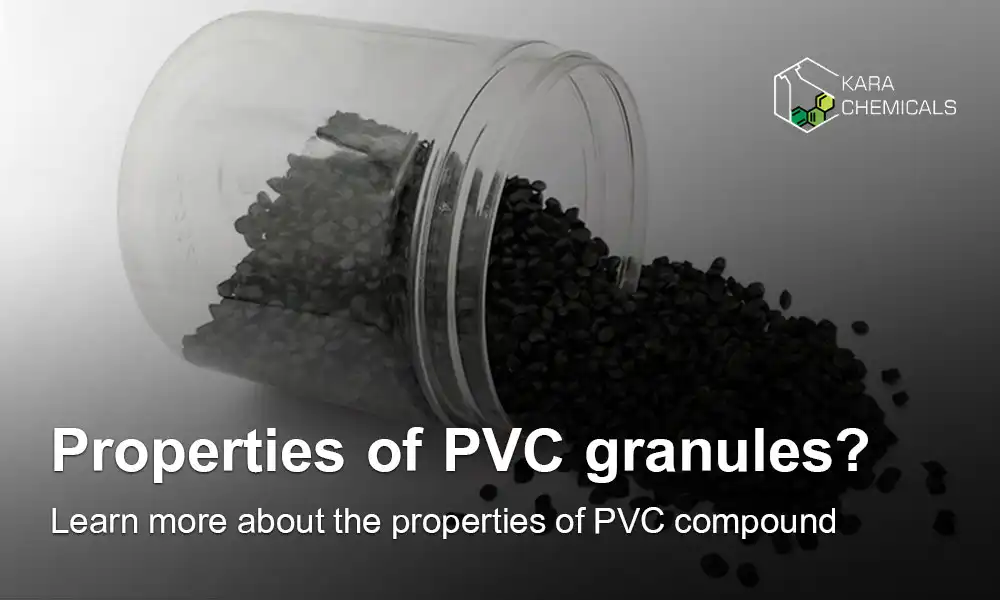
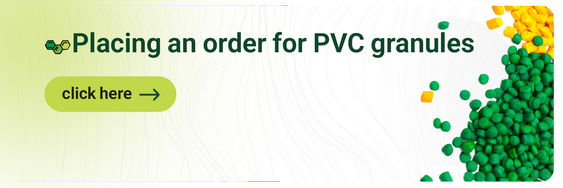


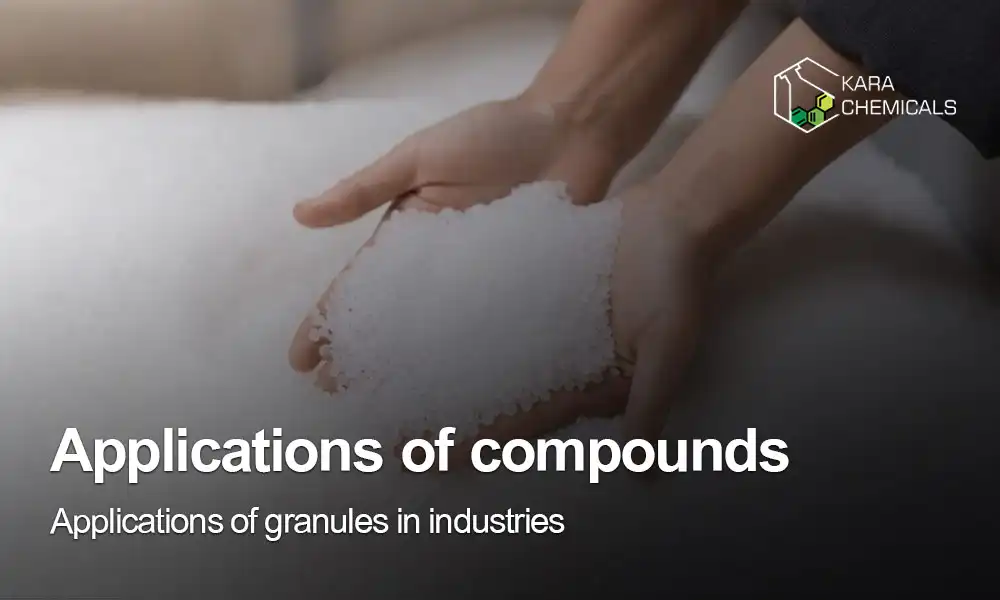
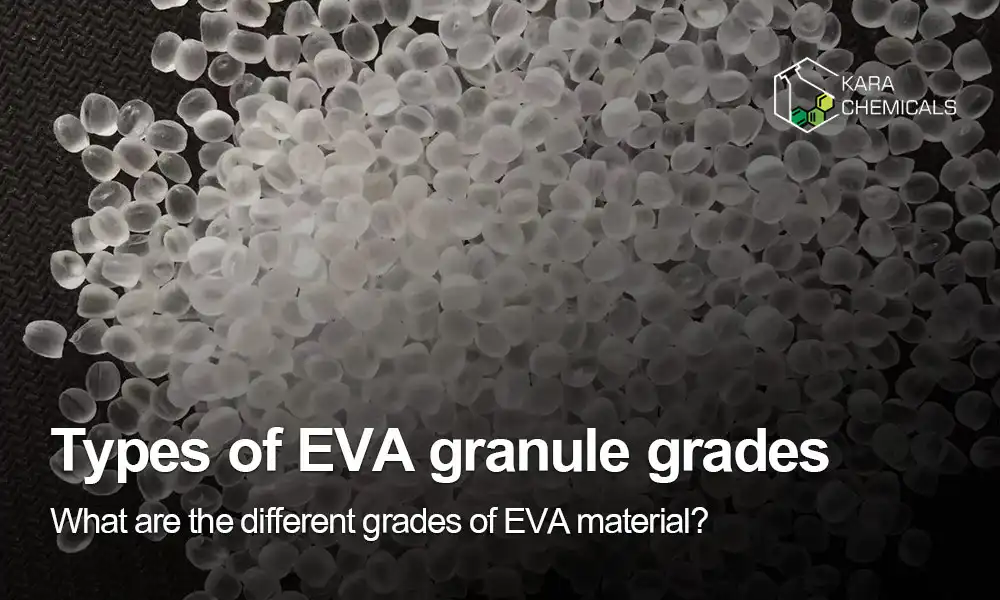
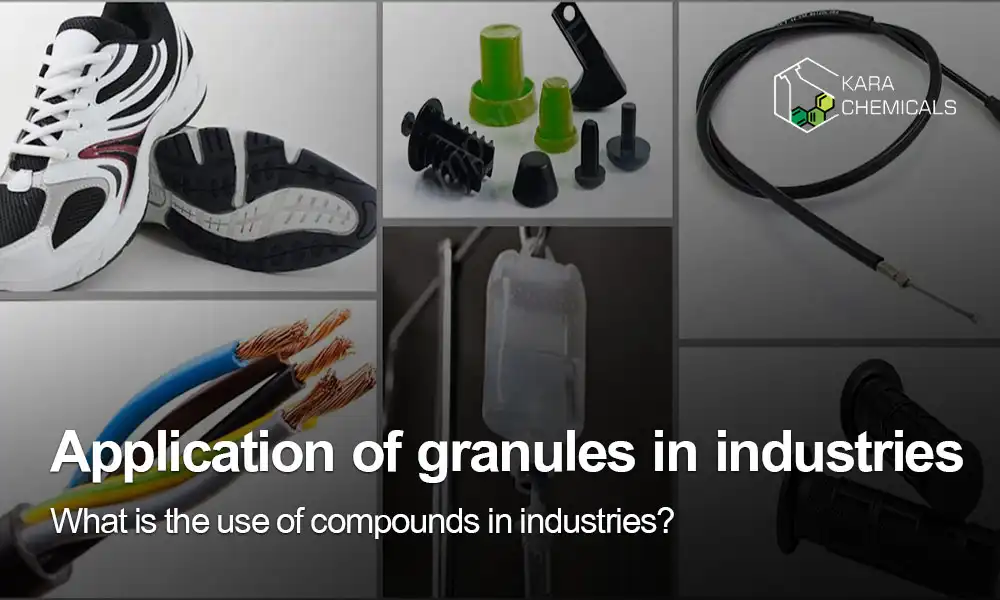
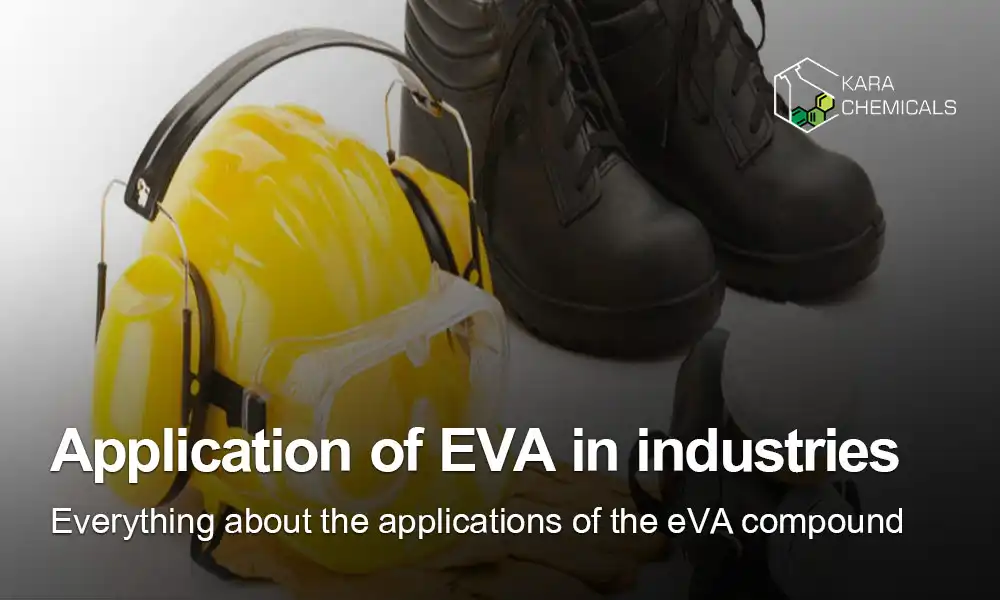
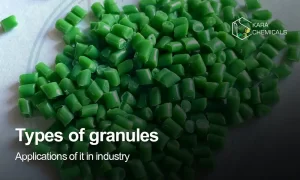
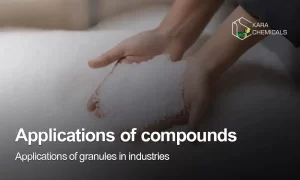
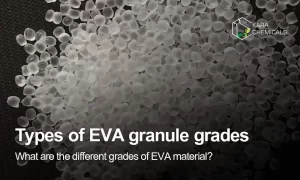
2 thoughts on “Properties of PVC granules: Learn more about the properties of PVC compound”